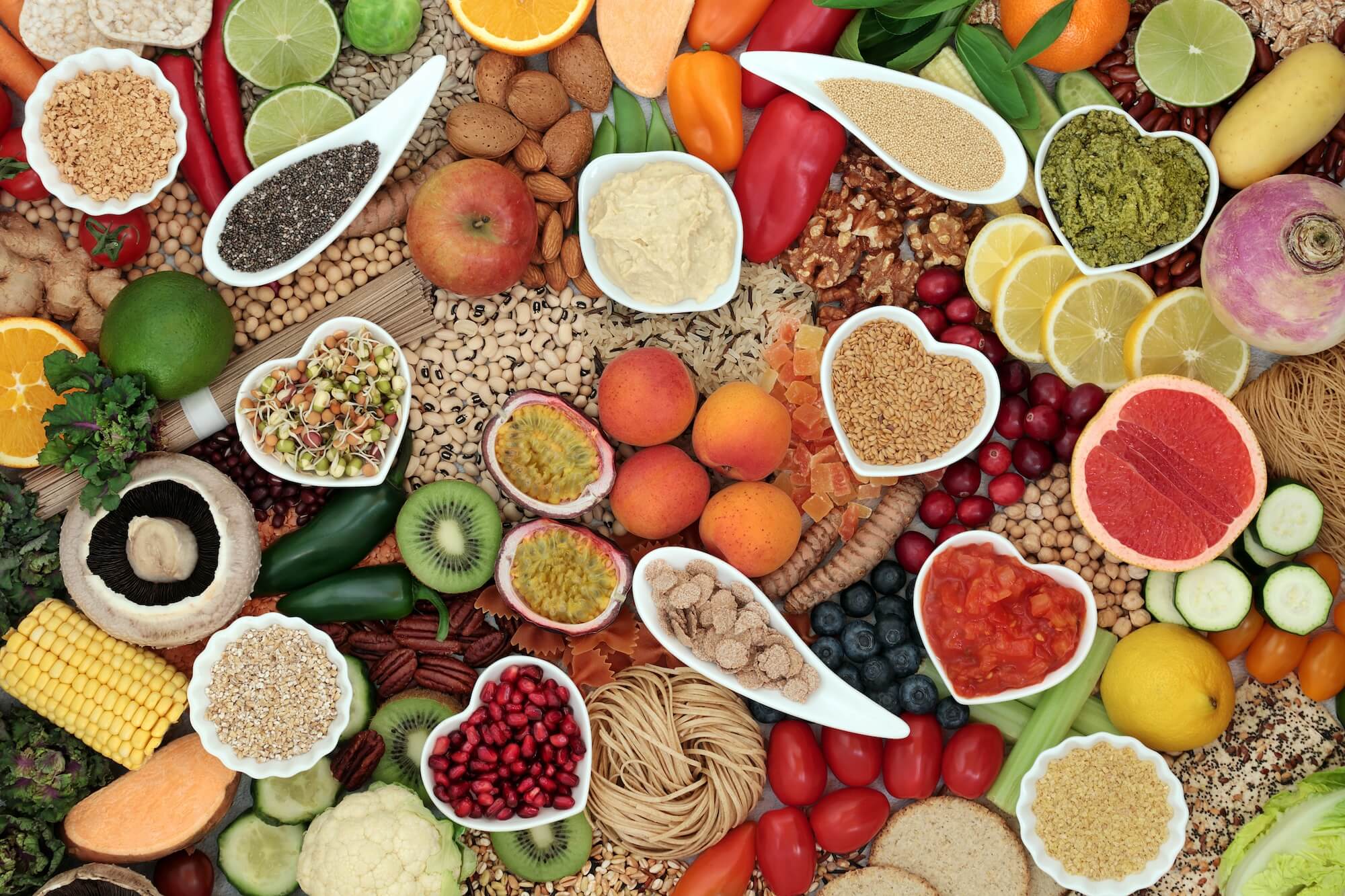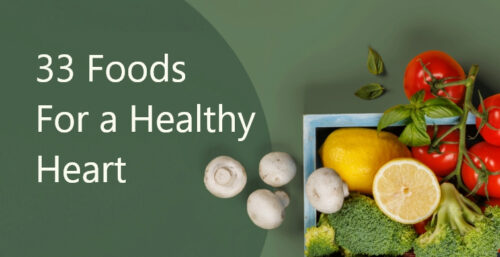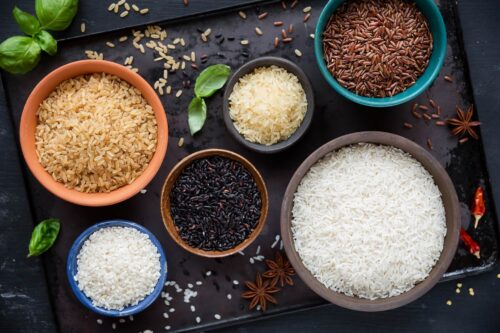A Lesson in Nutrition

Nutrients are substances that our bodies need for their maintenance, repair, and growth. Our foods contain the following basic nutrients: carbohydrates, fats, proteins, and water.
The Four Macronutrients
Carbohydrates are the body’s most efficient way to get everything it needs. Produced by plants through photosynthesis, carbohydrates are made from compounds of carbon, hydrogen and oxygen called sugars or saccharides. Molecules of these simple sugars attach together to make long branching chains called complex carbohydrates. These large carbohydrate molecules are commonly referred to as starch.
When eaten, enzymes disassemble these chains back into the simple sugars. These simple sugars then pass easily through the intestinal wall into the bloodstream for distribution to all the cells in your body. Metabolic processes change these simple sugars into energy.
Dietary fibers are even longer chains of complex carbohydrates – so complex that they don’t get entirely digested. Most fibers eventually end up in the colon and form the bulk of your stool. Many people think fibers are only the husks of grains and the long stringy components in fruits and vegetables, but dietary fibers are present in all plant tissues. Even peeled potatoes, for example, contain lots of fiber.
Fats are also complex molecules made up of carbon, oxygen, and hydrogen. While not as easily digested as sugars, fats remain an important nutrient and source of energy. Fats are divided into two categories: saturated fats (solid at room temperature), most commonly found in animal tissues, and unsaturated fats (liquid), most commonly found in plants. Our bodies can synthesize most fats from carbohydrates. These are said to be “nonessential” fats because we don’t need to get them from what we eat. There are only a few unsaturated fats we need to be healthy that our bodies can’t make by themselves. To get these “essential” fats, we have to eat them.
Proteins provide the raw materials for a large part of the functional and structural components of our bodies. Only as a last resort are they used as a source of energy. All proteins are built from various combinations of the same 22 relatively simple molecules called amino acids. Think of amino acids like the letters of an alphabet that can form a whole dictionary of words with different meanings. Those “different words” are all the different proteins found in nature. Proteins are found in all foods, both plant and animal, and our bodies can make most of them from scratch. Only eight of the 22 amino acids are “essential.” Just like the unsaturated fats above, we have to get these eight essential amino acids from our food for us to enjoy good health.
Water makes up a large part of our foods, too. Although it yields no energy, water is an essential element for life. It’s not just a passive solvent in which salts, compounds and gasses interact; water participates actively in forming building blocks of cells and is the environment in which cells live. About 60 percent of your body is actually water!
Because these four nutrients make up the largest portion of any food by weight, they are often referred to as macronutrients. Our foods also contain two micronutrients – vitamins and minerals – that make up only a tiny percentage of our food by weight.
Micronutrients
Vitamins are organic compounds that are synthesized for the most part only by plants and bacteria (though humans and most large mammals can synthesize vitamin D with the help of sunlight). Because of this, our supply of vitamins must come from plant foods and our own bowel bacteria. “Vita” means life, and as the name indicates, vitamins are essential for our existence. Without them we get sick.
Minerals are micronutrients that come from inorganic matter, primarily the earth, and are also essential in our food for good health. Minerals participate in thousands of metabolic reactions that take place throughout the body. For example, iron in the enzyme hemoglobin transports oxygen in our red blood cells. Some minerals are important elements in our structural material, like calcium which is a large part of bones and teeth.
Non-Nutrients
Our foods also contain various non-nutrients, substances that are not necessary for life or good health. Many of these substances, such as cholesterol, pesticides, herbicides, and additives, present real threats to our health. Even though these non-nutrients make up a small amount by weight of our foods, their health significance can be great, causing problems like heart disease and cancer.
Carbohydrates: A Closer Look
Carbohydrates are made by plants and stored in their leaves, stems, roots and fruits. Plant foods contain both simple and complex carbohydrates in various amounts. Fruits are often more than 90 percent carbohydrate, but most of their carbohydrates are the sweet-tasting simple forms of carbohydrate, such as glucose and fructose. Green and yellow vegetables store most of their calories as complex carbohydrates, but since they contain very few total calories, the amount of complex carbohydrate they provide in the diet is small. Whole grains (rice and corn), whole grain flours (wheat and rye, as well as whole grain pastas made from them, such as wheat and soba noodles), tubers (potatoes and yams), legumes (beans and peas), and winter squashes (acorn and hubbard) contain large quantities of complex carbohydrates and thus are known as starches. Rice, corn, and other grains, as well as potatoes, typically store about 80 percent of their calories in the form of complex carbohydrates. Beans, peas, and lentils are approximately 70 percent complex carbohydrates.
Starches contain sufficient calories to easily meet the energy requirements of an active person, and they’re also abundant in essential amino acids (from proteins), essential fats, fibers, and minerals. Many starches, such as the much-maligned potato, have a full complement of vitamins as well, whereas grains and legumes need the help of fruits or green and yellow vegetables in order to provide adequate vitamin A and C.
You’ve probably heard that marathon runners and other endurance athletes “load up” on carbohydrates before an event in order to store energy-providing carbohydrates for the long race. They do this because it works. Loading up on carbohydrates several times a day will give you the energy to race through your busy life.
The only food from animals in which a carbohydrate is found in significant amounts is milk which contains a simple sugar called lactose, but lactose can’t be digested by most adults, and consequently, can cause assorted evidences of indigestion, such as diarrhea, stomach cramps, and hurtful amounts of gas.
In general, Americans eat far too few calories from carbohydrates – only about 40%. To make things worse, the kinds of carbohydrates eaten most commonly are “empty calories” in the form of white sugar, corn syrup, and fructose. A healthy diet, like the McDougall diet, is closer to 80% carbohydrate from nutritious foods: starches, vegetables and fruits.
Percent of calories found as carbohydrates in various foods
| Almonds | 13 | Beans (kidney) | 72 | Beef | 0 | ||
| Bread (whole wheat) | 75 | Brussels Sprouts | 74 | Cabbage | 85 | ||
| Carrots | 92 | Cheddar Cheese | 2 | Chicken | 0 | ||
| Corn | 94 | Eggs | 2 | Grapefruit | 93 | ||
| Lobster | 1 | Milk (whole) | 30 | Oatmeal | 71 | ||
| Oranges | 88 | Peanuts | 16 | Peanut Butter | 15 | ||
| Pork | 0 | Potatoes | 90 | Rice (brown) | 89 | ||
| Spaghetti (whole wheat) | 81 | Sugar* | 100 | Sweet Potatoes | 92 | ||
| Tofu | 23 | Tomatoes | 85 | Turkey | 0 |
*When we hear or read the word sugar, most of us think of granular white table sugar. Unlike the simple sugars found in ripe fruit, this kind of sugar should be eaten only in limited quantities. After the refining process, it contains no fibers, proteins, essential fats, vitamins or minerals. It is purely concentrated sugar. Nothing could better deserve the descriptive term “empty calories,” because calories are all it provides. Although refined sugar can provide energy, too much refined sugar in the diet can lead to tooth decay, obesity, and high levels of triglycerides. When “empty calories” make up a substantial part of the diet, the result is a nutritional imbalance that weakens the body’s defense and repair systems, making us susceptible to diseases from infection to cancer.
Fibers are made only by plants and found only in vegetable foods. There is no fiber in beef, pork, chicken, lobster, cheese, egg, or other animal-derived foods.
Grams of fiber present in portions of food that yield 100 calories
| Beans (kidney) | 1.5 | Bread (whole wheat) | 0.7 | Brussels Sprouts | 4.4 | ||
| Cabbage | 4.3 | Carrots | 2.3 | Cauliflower | 3.7 | ||
| Corn | 0.7 | Green Beans | 4.0 | Grapefruit | 0.8 | ||
| Kale | 3.4 | Oatmeal | 0.3 | Oranges | 0.9 | ||
| Peas | 2.4 | Peanuts (with skin) | 0.8 | Peanuts (without skin) | 0.3 | ||
| Potatoes | 0.6 | Radishes | 4.1 | Rice (brown) | 0.2 | ||
| Scallions | 2.0 | Soybeans | 1.4 | Spaghetti (whole wheat) | 0.6 | ||
| Sweet Potatoes | 0.6 | Tomatoes | 2.3 | Tofu | 0.1 | ||
| Yams | 0.9 |
Recommended Articles

33 Foods For a Healthy Heart

How to Cook Rice







